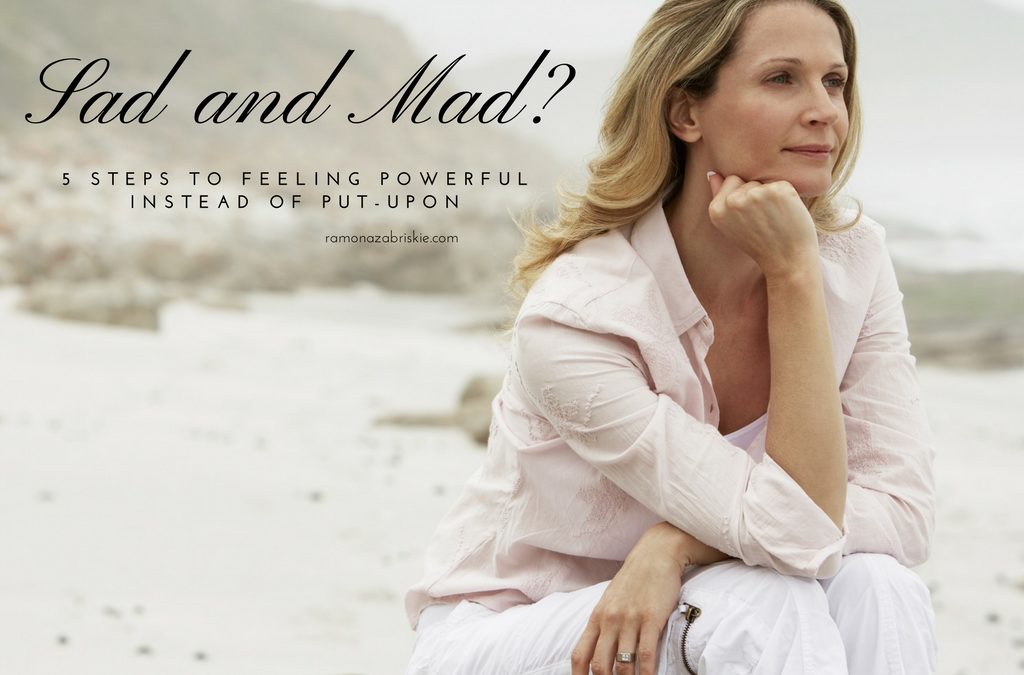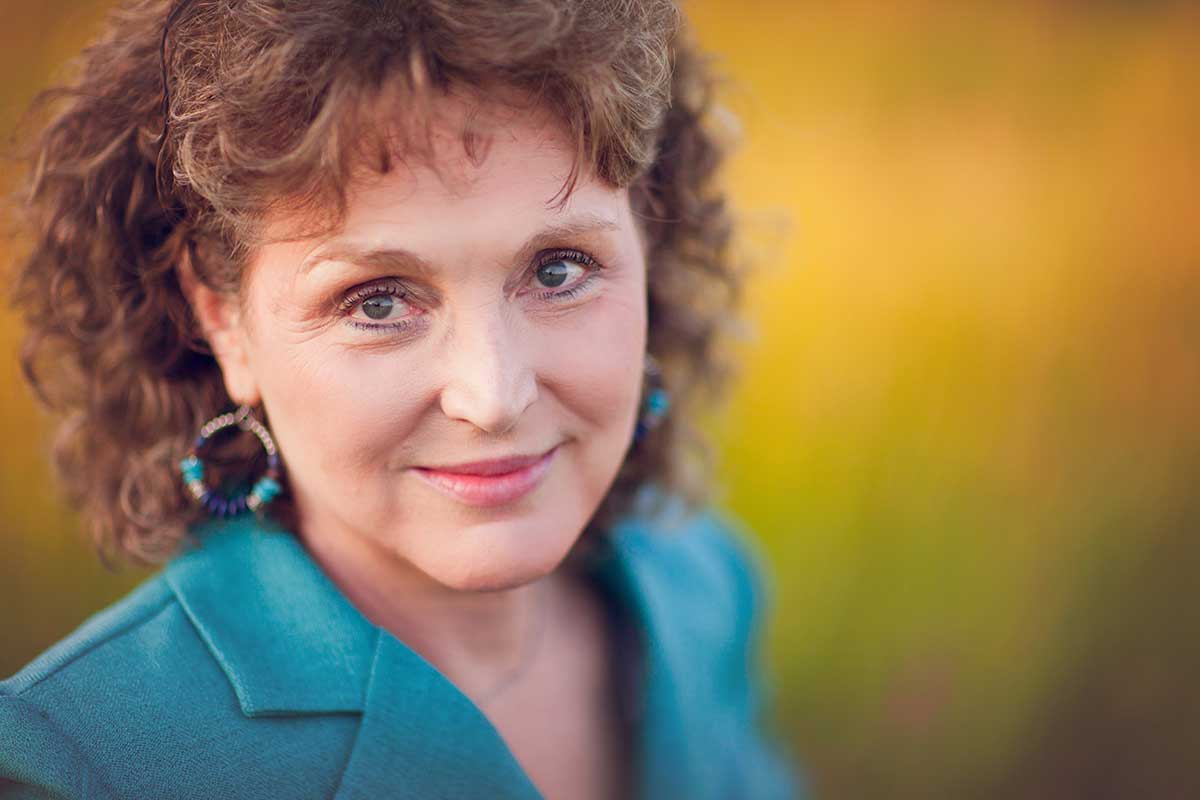I once sat across the table listening to an acquaintance spew fury and venom at me about her husband. Listening to women’s marital frustrations is a big part of my job, so it wasn’t her complaints that bowled me over. What dismayed and shocked me––more and more as she went on and on––was the resolute hardness in her face and in her voice; a steely self-absorption (cultivated over many years), that had absolutely no interest in considering any other point of view; a position firmly entrenched in one mistake her husband had made in his long-ago past that he had repented of a thousand times over. I knew for a fact that he was an exceptionally good man who loved her and their family deeply.
My every day is centered on helping women discover and develop the enormous power of the heart to affect their own happiness, and it blows my mind to see the thrilling results. But not everyone wants that power. Occasionally I run across a heart that refuses to see, or seek, happiness. Why is that?
In every stay-sad-and-mad case (and we’re talking intelligent women married to well-intentioned men with no history of real trauma, mental health issues, or abuse) it seems to me that the individual suffers from two things:
- A sense of inadequacy: They have a misconception of themselves; a false image that fears the truth; an alternate reality that for so long has taken so much of their mental and emotional energy to maintain, they cannot conceive of letting it go or replacing it.
- A sense of victimization. In order to keep alive that sense of inadequacy (upon which their entire view of the world and self is built), they cannot be responsible (in one degree or another) for their own misery. The embedded default, therefore, becomes blame. Accusation is the only possible soother in this mindset––however spiritually unsatisfactory, tiring, or temporary.
Thus, since vindication rather than responsibility is the perpetual “last breath”, the only hope for survival, it is clung to fiercely. My friend, who could not forgive her deserving husband, was choosing to stay inside her citadel of self-interest where windows to the outside were so few and so narrow, “others” (including all the friends and family who were advocating for the marriage), had lost much of their humanity; they had become barely more than a help or a hindrance to the her. As long as she perceived them as perpetrators of her misery, these key people in her life were more static and one-dimensional, than fully human.
This foundational way of looking at yourself and others is obviously thin, tiring, and tenuous. To stay camped in your own agenda, to be the sole guardian––watching, waiting, baiting the next offense––twisting and spinning current events to fit your interpretation while telling the same sorry stories from the past over and over and over is mentally exhausting, emotionally devastating, and physically unhealthy.
And yet we do it. Yes, we. Me included. In fact, as I recall, I was the victim just yesterday. And I’ll probably be the victim again before this day is out.
The fact is, we all fall prey to “poor-me “ to one degree or another over and over and over because we are all, ALL of us, put upon. It’s impossible not to be “put-upon” if you have people in your life.
So, since victimization IS part of the unavoidable human condition, the question for you and I becomes this:
Will we remain trapped in a bumper-car world, spinning hopelessly in circles, battered randomly, and from our point of view, maliciously, by other drivers? Or will we try to escape that anxious, resentful arena?
Whether the victim-ride lasts for minutes, hours, days, or years––getting “out” (changing our status from “misused” to “master”), is an intentional process; it is a mindset that has to be reset every day. Reclaiming the power that is rightfully ours; that is, the power to control our lives and affect our own happiness, means gradually, thoughtfully, replacing the advantages of being the one that is put-upon (lots of attention, no risk, no liability), with the far greater advantages of being the one that is powerful (lots of peace, lots of progress, lots of love).
And no “other” can do that for––or to––you, but you. If we’re ready to shed the stay-mad-and-sad in us, we must:
- First: admit that how we perceive and respond to our loved ones is our choice.
- Second: set aside our black and white way of thinking about them.
- Third: learn more about human drives and relationships and behaviors so that understanding can replace judgment, including of ourselves.
- Fourth: be open to a new paradigm and to practicing a better healthier way of interacting with our loved ones.
- Fifth: study out and explore the phenomenon of forgiveness, which is also, ultimately, a choice.
To go from sad-and-mad to glad-and growing, though revolutionary for some, is totally possible. I watch it happen every day in a big way with the women I serve personally at Wife for Life University. There’s no question that re-educating one’s self in order to lower the drawbridge, or to walk away from the bumper-car, takes a consistent, concerted effort, but discovering the graceful power in humility, kindness, sympathy, and love (receiving as well as giving), is the ultimate refreshment for the human soul.
Just last week, a student told me that the process had replaced her lifelong feelings of interminable sadness with feelings of “comfort and homecoming and acceptance”. Having taken the first uncomfortable steps necessary to permanently casting off her victimhood, she summarized the next far more pleasant ones:
“My job now is to have more faith in the future and to leave the past in the past. I need to give my husband a chance.”



Beautifully expressed. Compassionate and insightful.
Exactly! It may be hard to face this truth…. yet when you do life begins to shift and finally fall into place.
We are creatures of power and action…it IS ours to ACT and not to be acted upon each day. Truth, truth, truth!! Thank you fro this today. I needed the reminder.
This is a powerful message. I’ve seen this in myself (like this minute… it’s been a bad few days being the mom) and others. Any suggestions for further study and deeper learning?
Yes, Marni! Many books and experts, but the one I recommend the most often is The Bonds That Make Us Free, by Terry Warner.
https://www.amazon.com/dp/B002QCJO0W/ref=dp-kindle-redirect?_encoding=UTF8&btkr=1
As well as The Anatomy of Peace by the Arbinger Institute
https://www.amazon.com/Anatomy-Peace-Resolving-Heart-Conflict-ebook/dp/B00SGET4BS/ref=pd_sim_351_1?_encoding=UTF8&psc=1&refRID=9Z2W3ES6C6GJFG45HCXD
Of course, I also recommend my own book, Wife for Life: The Power to Succeed in Marriage, and the best program on the planet for learning to actually APPLY these things: Wife for Life University! http://wifeforlifeuniversity.com/